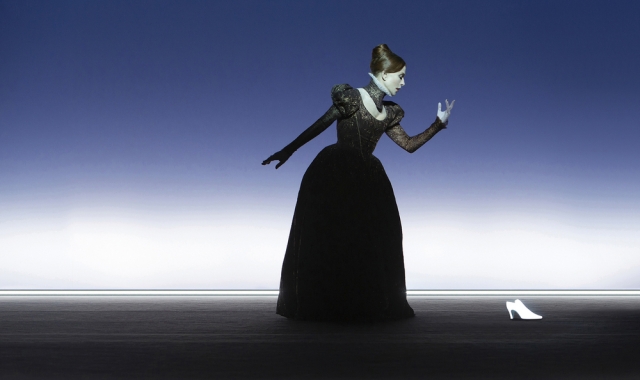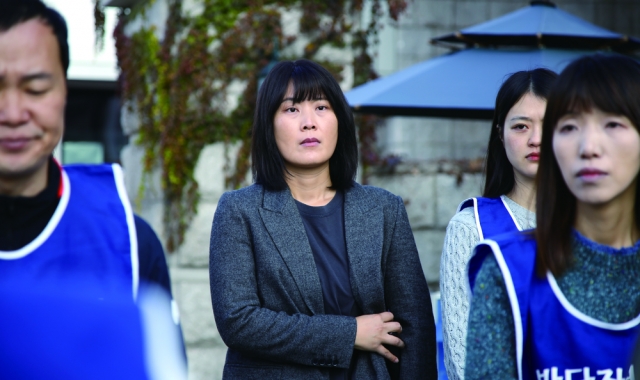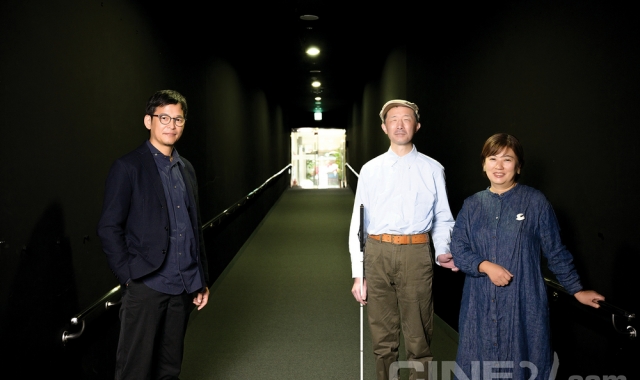
11월12일, 최근 영국 소설의 대표적인 캐릭터 중 한명을 다룬 두 번째 영화인 <브리짓 존스의 일기2>가 런던에서 개봉한다. 주연배우는? 텍사스 태생의 미국 여배우 르네 젤위거다.
영화는 1990년대 후반 기자 출신 헬렌 필딩이 쓴 소설 두편 중 두 번째를 원작으로 한 것이다. 소설들은 살아 숨쉬는, 코믹하게 신경과민적인 현대 영국 미혼여성을 보여주며, 그녀가 끊임없이 몸무게, 남자친구 문제, 다른 사람들이 자기를 어떻게 보는지 등에 대해 고민하는 것을 다룬다. 일기 형식으로 쓴 이 소설 두편은 지역 특색이 짙은 농담과 언어적 유희로 가득하여 오후에 차 마시는 것이나 로스트 비프나 머핀만큼 영국적이다.
첫 영화 <브리짓 존스의 일기>(2001) 캐스팅이 발표됐을 때, 영국의 선정적인 타블로이드판 신문들은 미국인이- 그것도 텍사스식 콧소리로 말하는 이가- 이토록 전형적인 영국인 역을 맡았다는 데 대해 탄식했다. 그런데 영화가 개봉했을 때 영국에서만 6천만달러의 수익을 거뒀고, 이는 미국 전체 흥행보다 약간 덜한 것이었다. 영국인 역을 확실하게 소화해낸 다른 미국인들과 마찬가지로- <슬라이딩 도어즈>나 <엠마>의 기네스 팰트로처럼- 영국인들은 젤위거를 마음으로 받아들였다. 이번엔 양키가 영국인 역을 맡았다고 트집잡는 언론은 없었다.
새 영화는 첫 영화만큼 신선하지는 않지만, 젤위거는 이제 완전히 브리짓의 몸속에 들어갔다. 영국식 발음은 흠잡을 데 없고, 영국 배우 휴 그랜트와 콜린 퍼스와 완벽하게 맞물리는데다 끊임없이 미국인이 영국 여인을 연기하고 있단 것을 스스로 상기시키지도 않는다.
관객이 민족성보다 연기력을 근거로 투표하는 공상의 영화세계에선 마땅한 일이다. 20세기의 가장 아이콘 같은 영국 주인공 중 상류층 스파이 제임스 본드는 원래 노동계급 출신 스코틀랜드인 숀 코너리가 연기했고, 최근엔 아일랜드 출신 피어스 브로스넌이 연기했다는 것을 기억할 만하다. 뒤집어서 웨일스계 여배우 캐서린 제타 존스와 런던내기 팀 로스는 정기적으로 미국인 역을 설득력 있게 소화해낸다.
‘브리짓’ 영화는 두편 다 미국 스튜디오들이 절반 이상 투자했고, 할리우드에 관련된 대부분의 것과 마찬가지로 돈과 스타파워가 결정적이다. 그렇지만 비슷한 문화나 공유된 언어가 제공하는 ‘크로스-캐스팅’의 기회는 단지 영국과 미국 업계에만 제한된 건 아니다. 스칸디나비아에서도 비슷한 식으로 배우와 감독들은 노르웨이, 덴마크, 스웨덴 사이를 편안하게 오간다. 스칸디나비아 출신이 아닌 경우 많은 사람들은 스웨덴의 대가 잉마르 베리만 감독이 총애하던 여배우 리브 울만이 스웨덴어를 유창히 하긴 했지만 약간의 노르웨이식 발음이 있는, 사실상 노르웨이인임을 아직 깨닫지 못한다.
이제 중국 대륙과 홍콩, 대만 업계 사이의 경계가 개방되어, 중국 배우들은 이 다양한 업계 사이를 자유롭게 누비고, 제작자들은 영국이나 미국영화와 똑같은 상업적 목적으로 각국의 배우를 한명씩 캐스팅하는 경우도 종종 있다. 이것은 주로 한 나라에 제한된 언어 때문에 한국영화 제작에 아직 영향을 주지 않고 있다. 그렇지만 한국과 다른 동아시아 국가 사이의 공동제작 영화가 늘고 있는 추세라 관객은 크로스-캐스팅의 재정적 현실을 맞을 준비를 해야 할 것이다.
수년간 중국인과 일본인은 영어권 영화와 아시아영화에서 서로의 인물을 연기했다. 최배달 역을 홍콩 무술 스타가 맡았다면 한국 관객과 언론은 어떤 반응을 보였을까? 아니면- 브리짓의 아이콘 같은 위상에 더 근접해서- 전지현이 연기했던 “엽기녀”를 한국어에 유창한 일본인이나 중국인 여배우가 연기했다면?
On 12 November, the second film about one of the most iconic characters in recent English fiction, "Bridget Jones: The Edge of Reason," opens in London. Its star? Texan-born American actress Renee Zellweger.
The movie is based on the second of two novels written in the late 1990s by journalist Helen Fielding, about a walking, talking, comically neurotic Modern English Miss incessantly worrying about her weight, boyfriend problems and how she is perceived by others. Written in the form of a diary, and full of local jokes and linguistic tropes, the two books are as English as afternoon tea, roast beef or muffins.
When casting was announced for the first movie, "Bridget Jones's Diary" (2001), the British tabloid press moaned about an American - especially one with a Texan nasal twang - playing such a quintessentially English character. But when the film was released, it grossed a massive $60 million in the U.K. alone, only slightly less than the whole of the U.S. ($71 million).
As it has with other Americans who've convincingly played English characters - such as Gwyneth Paltrow in "Sliding Doors" and "Emma" - the British took Zellweger to their hearts. This time round, there's been no carping by the press about a Yank playing a Brit.
The new film is not as fresh as the first one, but Zellweger is now completely within the skin of Bridget. Her English accent is faultless, she melds perfectly with British stars Hugh Grant and Colin Firth, and you don't keep reminding yourself that this is an American playing an Englishwoman.
That's how it should be in the make-believe world of the movies, where audiences tend to vote on performances rather than ethnicity. It's worth remembering that one of the most iconic English heroes of the 20th century, upper-class spy James Bond, was originally played by a working-class Scotsman, Sean Connery; he's recently been played by an Irishman, Pierce Brosnan. On the reverse side, Welsh actress Catherine Zeta-Jones and Cockney actor Tim Roth regularly play Americans, to convincing effect.
Both "Bridget" films were actually majority financed by U.S. studios and, as with most things Hollywood, money and star power are the bottom-line. But the opportunities for cross-casting offered by similar cultures or shared languages aren't limited just to the U.K. and U.S. industries. In Scandinavia, actors and directors move between Norway, Denmark and Sweden with similar ease: many non-Scandinavians still don't realise that Liv Ullmann, a favourite actress of Swedish maestro Ingmar Bergman, is actually Norwegian, and though fluent in Swedish still spoke it with a slight accent.
Now the borders have opened between the industries in mainland China, Hong Kong and Taiwan, Chinese actors now move freely between the various industries, with producers sometimes casting one from each territory for exactly the same commercial reasons as in U.K and U.S. productions.
With a language that is largely restricted to a single country, this is a phenomenon that has yet to affect Korean filmmaking. But Korean coproductions with other East Asian countries are on the increase, so audiences should start to brace themselves for the financial reality of cross-casting.
For years, Chinese and Japanese have played each other in both English-language and Asian movies. How would Korean audiences and the media have reacted if Choi Bae-dal had been played by a Hong Kong martial arts star? Or - closer to Bridget's iconic status - "yeobgi" girl played by a Japanese or Chinese actress fluent in Korean?






